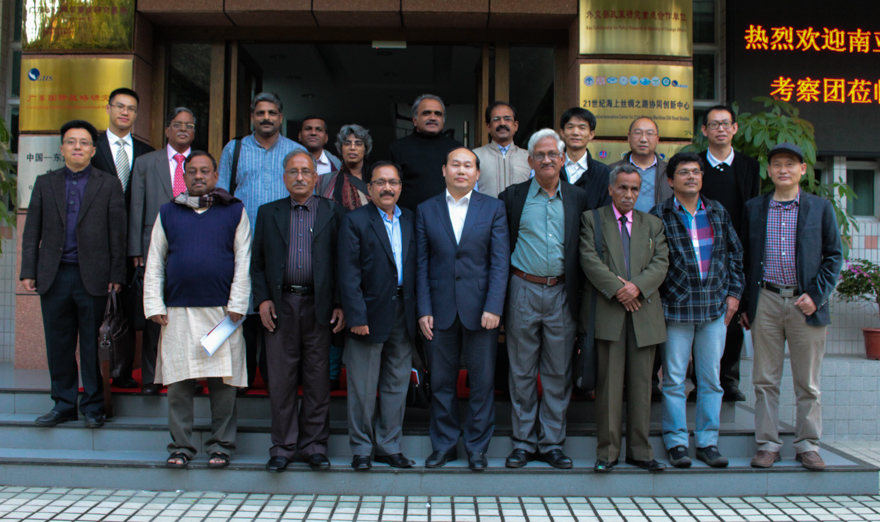On December 10th 2015, South Asia Left Wing Political Party Delegation Symposium was held in Meeting Room 304 in the Guangdong Research Institute for International Studies. Attendees were officials from the International Liaison Department of the Central Committee of the CPC; officials from the Provincial Foreign Affairs Office; South Asia Left Wing Political Party Delegation and scholars from GDUFS.
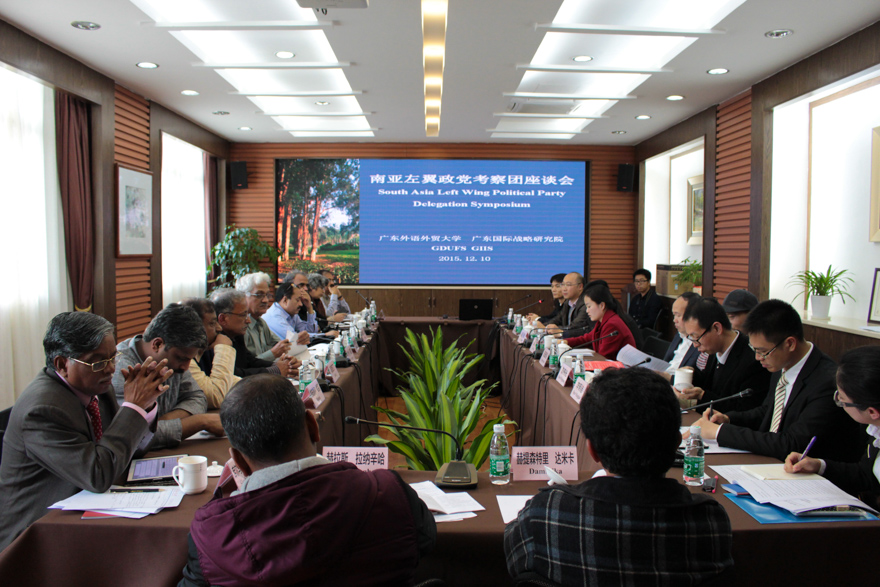
Speaking first, YANG Aimin, Vice President of GDUFS, gave a brief introduction of the university, getting the guests familiar with GDUFS. His speech also revealed the theme of this meeting: to carry out a preliminary discussion of co-building One Belt One Road.
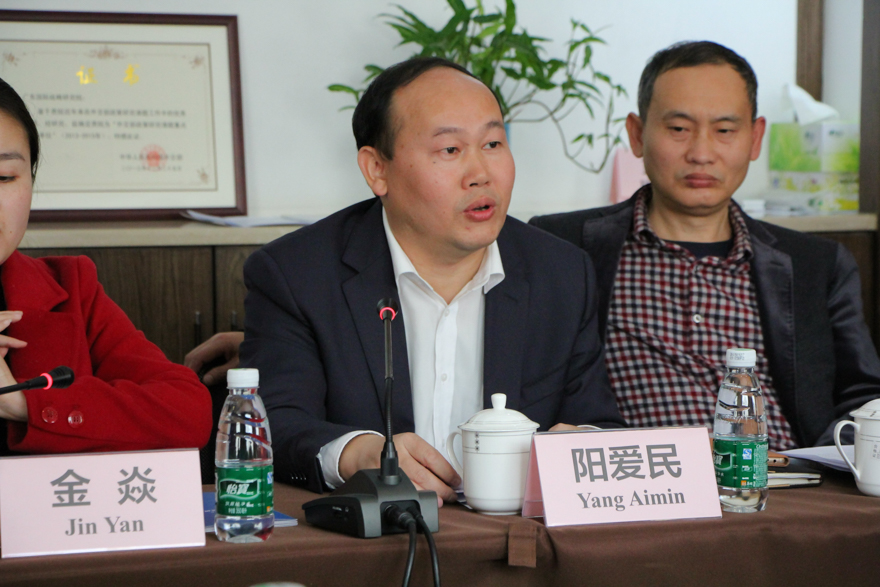
Then, LIN Tao, Minister of the First Bureau of the International Department of the Central Committee of the CPC, described the visit backdrop of the delegation, with the aim of facilitating further discussion. According to him, paying an exploratory visit to Yunnan previously, the delegation has just finished a trip to Beijing to attend a related seminar. Moreover, it was because the purpose of consulting successful experiences and practices of Guangdong economic locality in OBOR that they came to Guangzhou regardless of physical tiredness.
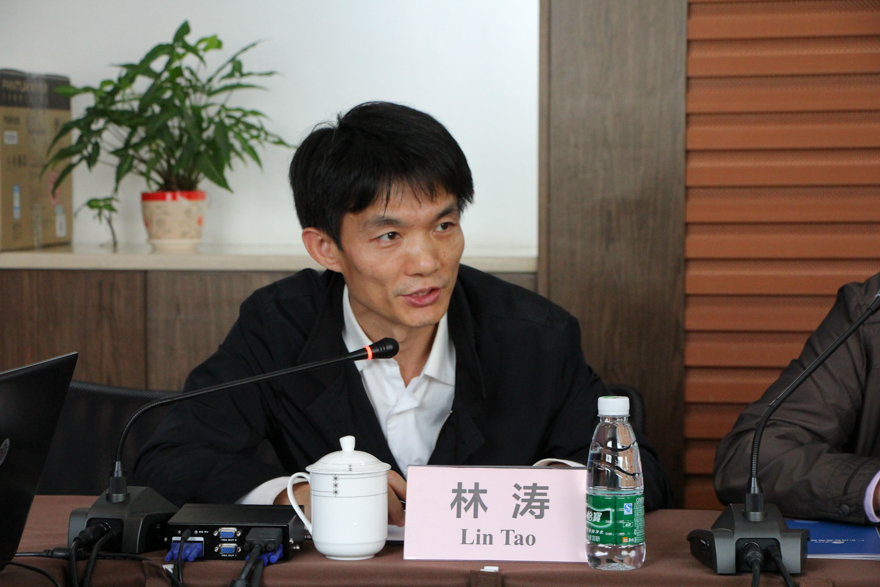
Also, Athreya, the head of the delegation, delivered a speech to the present. First of all, he congratulated GDUFS on the 50th anniversary and expressed his sincere thanks for treating the delegation with the utmost cordiality, anticipating the speech of the specialists and hoping that they could acquire satisfied answers from interaction between both sides. In addition, Athreya introduced other attendees from South Asia.
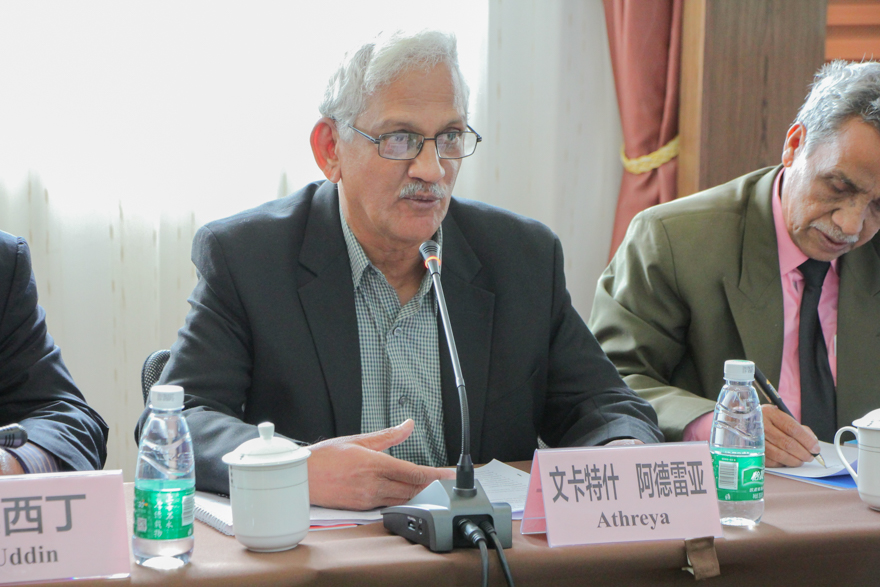
Next came to the respective speeches of experts and scholars.
Firstly , CHEN Weiguang, Researcher of Guangdong Research Institute for International Studies and Director of GDUFS Higher Education Research Center, articulated a concise statement of the problems, such as the capital shortage that Guangdong has faced in joining OBOR. He also emphasized Guangdong’s significant position in OBOR, insisted that the province is supposed to bring the superiority of Pearl River Delta into full play, build the large bay area of Guangdong-Hongkong-Macau, and meanwhile strengthen the city construction of Guangzhou, Shenzhen, Shantou and Zhuhai, greatly contributing the promotion of OBOR.
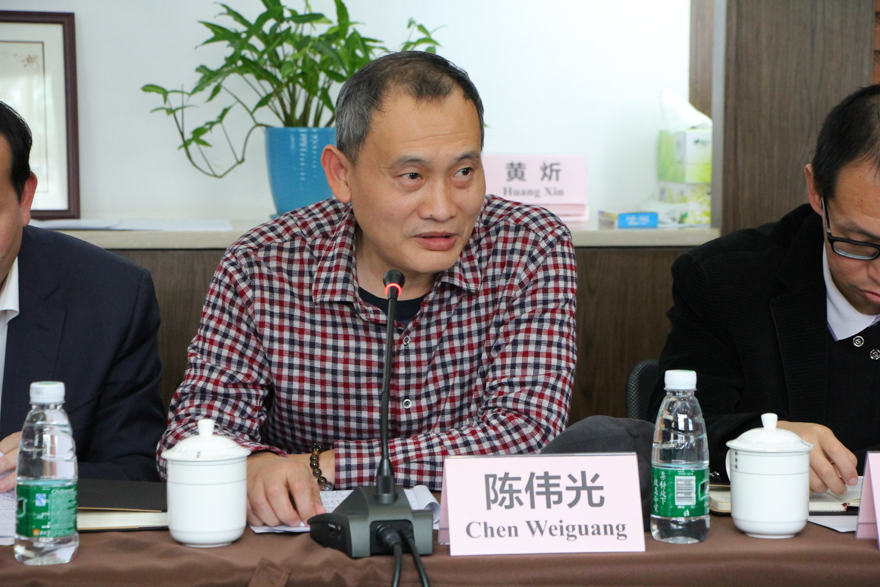
Thereafter, YI XingJian, Director of yjr School of Finance and Researcher of the Guangdong Research Institute for International Studies, introduced the strategic attempts of Guangdong during promoting One Belt and One Road. He believed that the achievements Guangdong made were tremendous, also placing splendid hope on development of the future.
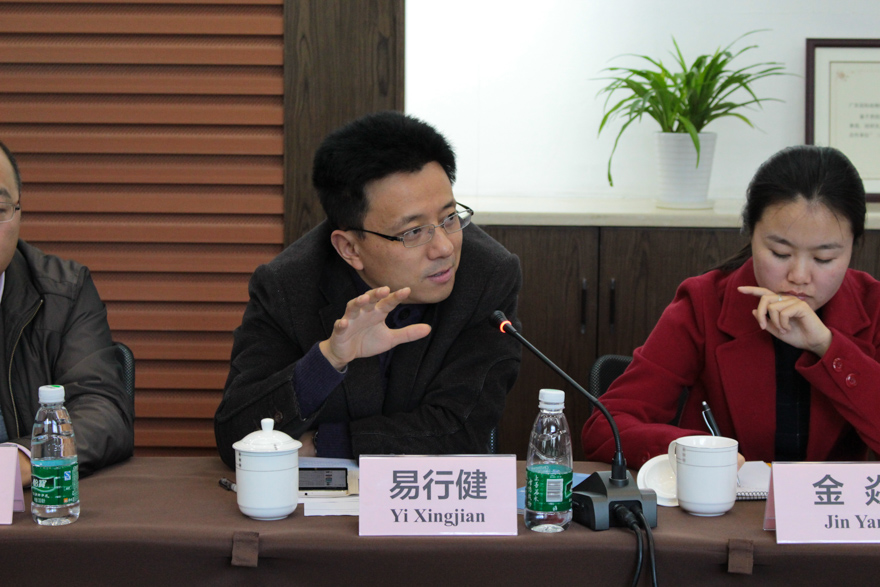
Last but not least, SHEN Minghao, Director of Center for Cantonese Merchants Research and Researcher of the Guangdong Research Institute for International Studies, cited detailed data to declare that the reforms in Guangdong, such as setting up unilateral free-trade zone and promoting trade facilitation, significantly raising the GDP growth, highlighting that the establishment of united and open market tends to bring benefits to participating countries. OBOR should be more open and tolerant.
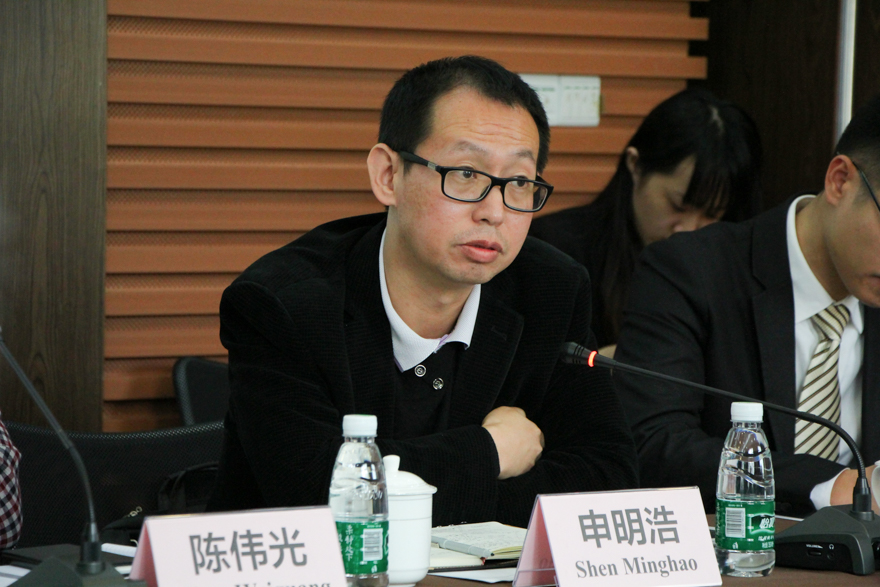
After the separate speeches, both sides started to exchange their ideas on OBOR in terms of their own national conditions. The delegation raised a series of practical questions which enabled them to better understand OBOR. For example, Dammika, a member of the Central Committee of People’s Liberation Front of Sri Lanka, asked Guangdong Research Institute for International Studies if they did research on the opinion of the public of South Asia on OBOR before. The Chinese side also provided them with feasible directions according to their doubts. What’s more, there was a discussion on the situations of overseas students of GDUFS. Scholars of GDUFS promised that they will spare no effort to enhance academic communication between the two sides and offer various talents to development of both sides.
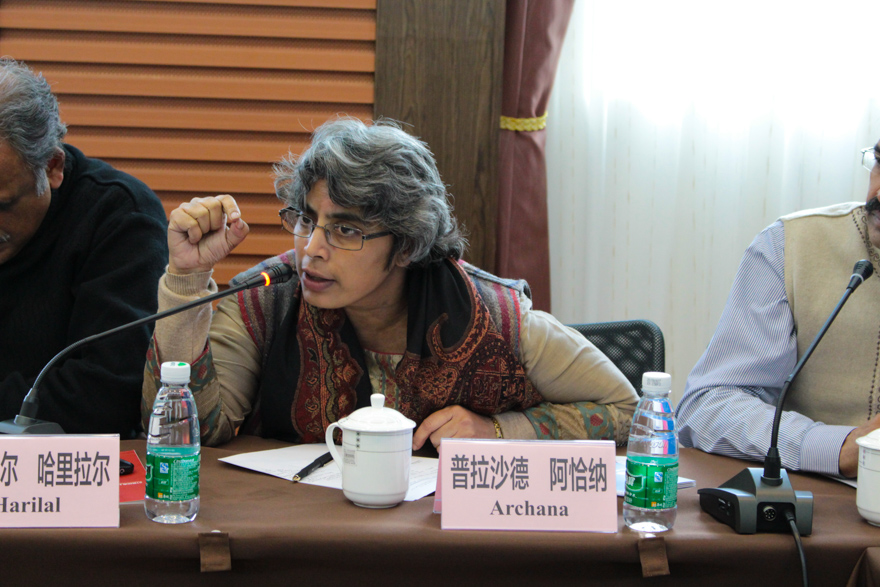
The attendees posed for a group photo after the meeting. Though geographically far apart from each other, there is every reason to believe that with joint efforts, both sides will promote more fruitful cooperation contributing to OBOR
